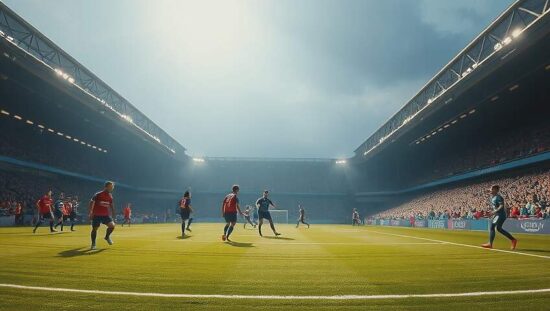A late surge propelled Hertha BSC to a narrow 1-0 victory over Fortuna Düsseldorf on Saturday evening, a result that underscores the mounting pressure on both clubs as they grapple with seasons falling short of expectations. The match, played before a subdued crowd at the Olympiastadion, exposed vulnerabilities within both teams and highlighted the precarious nature of their respective campaigns.
Fortuna Düsseldorf dominated the opening stages, demonstrating an early intensity that left Hertha struggling to find their footing. Missed opportunities from Christian Rasmussen and Tim Oberdorf, expertly thwarted by Hertha goalkeeper Tjark Ernst, signaled a significant challenge for the Berlin side. The disjointed start raised questions about Hertha’s tactical preparation and their ability to execute under pressure, especially given the weight of expectation surrounding the club’s return to the higher leagues.
While Hertha gradually regained composure and curtailed Düsseldorf’s initial onslaught, they failed to assert sustained dominance. The game, characterized by prolonged periods of stalemate, mirrored the frustrating stagnation both teams are experiencing this season. Manager Stefan Leitl’s decision to introduce substitutes – Sebastian Gronning, Jon Dagur Thorsteinsson and crucially, Maurice Krattenmacher – in the 59th minute, proved to be the turning point.
The late-game drama intensified, with clear-cut chances squandered by both sides, ultimately culminating in a decisive goal in the sixth minute of added time. A swift counter-attack, initiated by Fabian Reese and culminating in Krattenmacher’s powerful strike, sealed the victory for Hertha. While the goal provided a fleeting sense of relief for Hertha supporters, it does little to mask the underlying concerns. The club’s continued position in eighth place in the league table suggests a fundamental disconnect between ambition and performance.
For Fortuna Düsseldorf, stranded in 13th place, the loss further compounds their struggles. The team’s inability to convert early pressure into goals exposes a recurring issue of clinical finishing and tactical rigidity. Questions will inevitably arise concerning the squad’s cohesiveness and the manager’s ability to inspire a consistent level of play. The increasingly evident gulf between the club’s aspirations and their present form necessitates a critical evaluation of strategy and personnel if they are to avoid a prolonged period of underwhelming performance.





